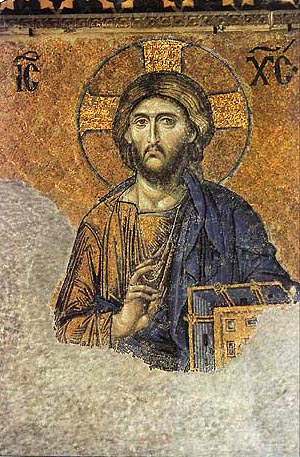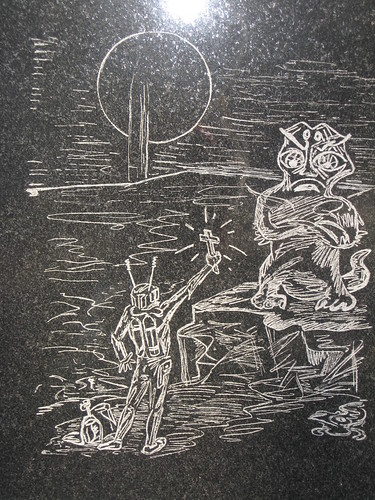Fraggle Rocker
Staff member
It's the day before Easter and the Washington Post always runs the "Religion" page on Saturday. Today they discussed a book, Resurrection: The Power of God for Christians and Jews, in which authors Kevin Madigan and Jon Levenson say that many modern Christians and Jews misunderstand the Resurrection of Jesus as it bears upon their faith.
They trace the Jewish roots of the Christian belief in resurrection (with a small R) and say that history challenges the contemporary idea that resurrection simply means life after death. They say that being raised up has a physical element, not just a spiritual one.
Greek philosophy considered resurrection of Jews and Christians as simply the survival of an individual's soul in the hereafter, and this idea is popular now. But for early Christians and many Jews, resurrection meant being given back one's body, or perhaps being given a similar body newly created by God.
The authors and other scholars emphasize that Christians and Jews share the belief in resurrection for humankind. Christians tend to focus on the Resurrection with a capital R and don't understand how people who don't believe in the Resurrection of Jesus can believe in resurrection of any kind. Many Jews also assume that resurrection is a uniquely Christian hope.
Jews during the time of Jesus's alleged life believed that resurrection was bodily and communal, bringing justice to the oppressed and renewing creation. That belief was absorbed by the first Christians and formed part of their religion.
In the 19th century, as the rationalist thought of the Enlightenment finally began making its way into Judaism, belief in resurrection was deleted from Jewish prayer books. Only the Orthodox retained it. Today, Orthodox Jews still reject autopsies, cremation, embalming and organ donation, because they believe they will need those bodies intact when the resurrection comes. (Since they also believe that resurrection will occur for everybody at the same moment and may be thousands, millions or billions of years in the future after those bodies have decayed, fossilized or turned to dust, there is a bit of cognitive dissonance at work here.)
The concept of resurrection among Christians has also been influenced by the modern rejection of miracles and by popular culture. One scholar noted that most Americans expect the afterlife to be a continuation of life on earth, "like a really good assisted-living facility."
Belief in afterlife persists in America no matter how little they observe their religion. In one survey, 82% of respondents said they "absolutely" or "probably" believe in heaven, and 71% said the same about hell. (I've seen lower figures--something like 25% for hell--but they didn't include the weasel word "probably." What the heck does a person mean when he says he "probably" believes in something, anyway? )
)
The article didn't offer any statistics on the prevalence of belief in heaven and hell among American Jews. I don't think I know a single Conservative or Orthodox Jew, only Reform or completely secular, so I don't have a representative sample to survey.
One scholar noted that as Americans perceive the world as growing more chaotic, they are looking for divine responses to evil. Interest in resurrection is growing, along with ghosts, reincarnation, past-life regression, and contact with the dead.
They trace the Jewish roots of the Christian belief in resurrection (with a small R) and say that history challenges the contemporary idea that resurrection simply means life after death. They say that being raised up has a physical element, not just a spiritual one.
Greek philosophy considered resurrection of Jews and Christians as simply the survival of an individual's soul in the hereafter, and this idea is popular now. But for early Christians and many Jews, resurrection meant being given back one's body, or perhaps being given a similar body newly created by God.
The authors and other scholars emphasize that Christians and Jews share the belief in resurrection for humankind. Christians tend to focus on the Resurrection with a capital R and don't understand how people who don't believe in the Resurrection of Jesus can believe in resurrection of any kind. Many Jews also assume that resurrection is a uniquely Christian hope.
Jews during the time of Jesus's alleged life believed that resurrection was bodily and communal, bringing justice to the oppressed and renewing creation. That belief was absorbed by the first Christians and formed part of their religion.
In the 19th century, as the rationalist thought of the Enlightenment finally began making its way into Judaism, belief in resurrection was deleted from Jewish prayer books. Only the Orthodox retained it. Today, Orthodox Jews still reject autopsies, cremation, embalming and organ donation, because they believe they will need those bodies intact when the resurrection comes. (Since they also believe that resurrection will occur for everybody at the same moment and may be thousands, millions or billions of years in the future after those bodies have decayed, fossilized or turned to dust, there is a bit of cognitive dissonance at work here.)
The concept of resurrection among Christians has also been influenced by the modern rejection of miracles and by popular culture. One scholar noted that most Americans expect the afterlife to be a continuation of life on earth, "like a really good assisted-living facility."
Belief in afterlife persists in America no matter how little they observe their religion. In one survey, 82% of respondents said they "absolutely" or "probably" believe in heaven, and 71% said the same about hell. (I've seen lower figures--something like 25% for hell--but they didn't include the weasel word "probably." What the heck does a person mean when he says he "probably" believes in something, anyway?
The article didn't offer any statistics on the prevalence of belief in heaven and hell among American Jews. I don't think I know a single Conservative or Orthodox Jew, only Reform or completely secular, so I don't have a representative sample to survey.
One scholar noted that as Americans perceive the world as growing more chaotic, they are looking for divine responses to evil. Interest in resurrection is growing, along with ghosts, reincarnation, past-life regression, and contact with the dead.




